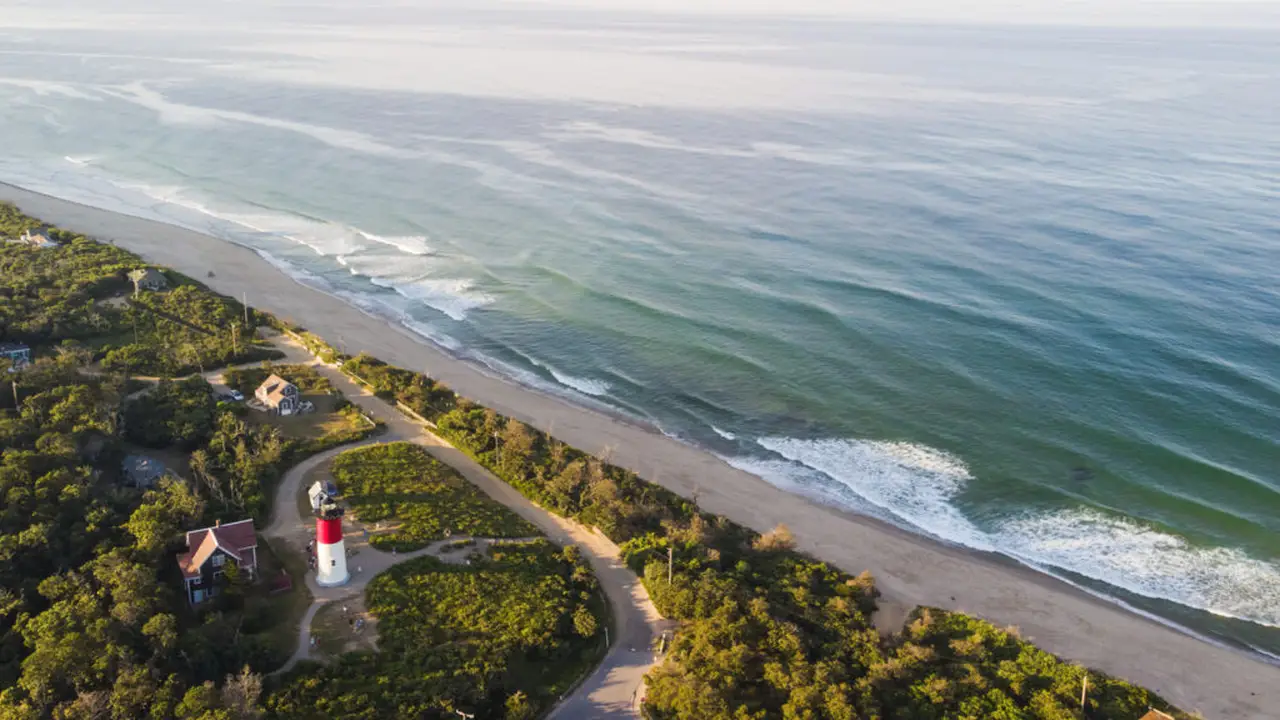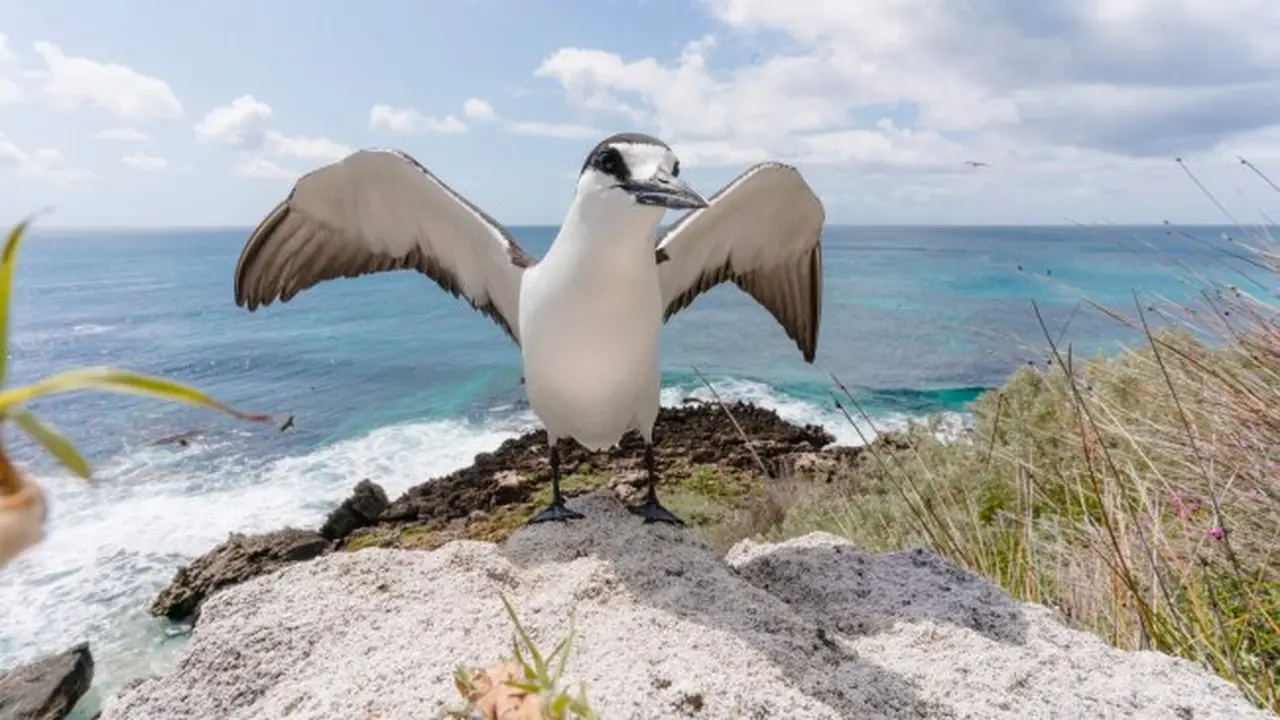7 Ways to Protect Coastal Ecosystems During Your Vacation
Learn 7 ways to protect coastal ecosystems during your vacation, promoting responsible tourism and environmental conservation.

Understanding Coastal Ecosystems and Their Importance
Coastal ecosystems are some of the most diverse and productive environments on Earth. They include a variety of habitats like coral reefs, mangroves, salt marshes, estuaries, and sandy beaches. These areas are crucial for supporting a wide range of marine life, protecting coastlines from erosion, and providing essential resources for local communities. When we travel to these beautiful destinations, it's important to remember that our actions can have a significant impact. Protecting these ecosystems ensures their health and longevity for future generations.
1. Choose Eco-Friendly Accommodations
Where you stay can make a big difference. Look for hotels and resorts that prioritize sustainability. These establishments often implement practices like energy conservation, water management, waste reduction, and support for local communities. Check for certifications like LEED or Green Globe, which indicate a commitment to environmental responsibility. By choosing eco-friendly accommodations, you're supporting businesses that actively work to protect the environment.
2. Reduce Your Plastic Consumption
Plastic pollution is a major threat to coastal ecosystems. Single-use plastics like water bottles, straws, and plastic bags often end up in the ocean, harming marine life and polluting beaches. To reduce your plastic footprint, bring a reusable water bottle, shopping bag, and utensils. Say no to plastic straws and opt for reusable alternatives. When purchasing products, choose items with minimal packaging or those packaged in recyclable materials.
3. Respect Marine Wildlife
Marine wildlife is often vulnerable to human disturbance. Avoid getting too close to animals, whether you're swimming, snorkeling, or boating. Do not feed marine animals, as this can disrupt their natural behavior and make them dependent on humans. When observing wildlife, maintain a safe distance and avoid making loud noises or sudden movements. If you're participating in activities like whale watching or dolphin tours, choose operators that follow responsible wildlife viewing guidelines.
4. Support Local Communities and Businesses
Supporting local communities can have a positive impact on coastal ecosystems. When you buy local products and services, you're helping to sustain local economies and reduce the environmental impact of transportation. Visit local markets, eat at local restaurants, and purchase souvenirs from local artisans. Avoid buying products made from endangered species or those that contribute to environmental degradation. Look for businesses that are committed to sustainable practices and support community initiatives.
5. Practice Responsible Snorkeling and Diving
Snorkeling and diving are fantastic ways to explore underwater ecosystems, but it's important to do so responsibly. Avoid touching or disturbing coral reefs, as they are fragile and easily damaged. Use reef-safe sunscreen that is free of harmful chemicals like oxybenzone and octinoxate. Be mindful of your buoyancy and avoid kicking up sediment or stirring up the seabed. If you're diving, follow the instructions of your dive operator and avoid collecting souvenirs from the reef.
6. Dispose of Waste Properly
Proper waste disposal is crucial for protecting coastal ecosystems. Always dispose of your trash in designated bins. If you're visiting a remote beach or natural area, pack out all of your trash, including food wrappers, cigarette butts, and plastic bottles. Participate in beach clean-up initiatives to help remove litter and debris from the shoreline. Be mindful of the impact of your waste on the environment and take steps to minimize it.
7. Educate Yourself and Others
Education is key to promoting responsible tourism and environmental conservation. Learn about the coastal ecosystems you're visiting, the threats they face, and the actions you can take to protect them. Share your knowledge with others, including friends, family, and fellow travelers. Encourage them to adopt sustainable practices and support conservation efforts. By raising awareness and promoting education, we can create a more sustainable future for coastal ecosystems.
Recommended Products for Eco-Conscious Coastal Travelers
Reef-Safe Sunscreen
Protecting your skin from the sun is essential, but traditional sunscreens often contain chemicals that can harm coral reefs. Reef-safe sunscreens are formulated without oxybenzone and octinoxate, two common ingredients that have been shown to damage coral DNA and inhibit their growth.
Product Recommendation 1: Raw Elements Tinted Facial Moisturizer SPF 30
Description: A tinted facial moisturizer that provides broad-spectrum SPF 30 protection using zinc oxide. It's water-resistant, reef-safe, and contains antioxidants to nourish the skin.
Usage Scenario: Ideal for daily use on the face, especially when spending time outdoors or engaging in water activities.
Comparison: Unlike chemical sunscreens, Raw Elements uses mineral-based protection, making it safer for coral reefs. It also offers a slight tint, providing light coverage and evening out skin tone.
Price: Approximately $20 - $25.
Product Recommendation 2: Stream2Sea SPF 30 Mineral Sunscreen
Description: A broad-spectrum SPF 30 mineral sunscreen that is biodegradable and reef-safe. It’s formulated for sensitive skin and is water-resistant for up to 80 minutes.
Usage Scenario: Suitable for all-over body use, especially during swimming, snorkeling, or diving. It's gentle enough for children and individuals with sensitive skin.
Comparison: Stream2Sea undergoes rigorous testing to ensure its safety for aquatic life. It's also packaged in eco-friendly materials, reducing its overall environmental impact.
Price: Approximately $18 - $22.
Reusable Water Bottles
Staying hydrated is important, but single-use plastic water bottles contribute to plastic pollution. Reusable water bottles are a sustainable alternative that can be refilled throughout your trip.
Product Recommendation 1: Hydro Flask 32 oz Water Bottle
Description: A durable, insulated stainless steel water bottle that keeps drinks cold for up to 24 hours and hot for up to 12 hours.
Usage Scenario: Perfect for hiking, beach trips, or everyday use. The wide mouth makes it easy to fill and clean.
Comparison: Hydro Flask is known for its high-quality insulation and durable construction. It comes in a variety of colors and sizes.
Price: Approximately $35 - $45.
Product Recommendation 2: Nalgene Tritan 32 oz Water Bottle
Description: A lightweight, BPA-free plastic water bottle that is durable and leak-proof.
Usage Scenario: Ideal for travel, camping, or everyday use. It's easy to carry and fits in most cup holders.
Comparison: Nalgene bottles are known for their durability and simplicity. They are also dishwasher safe, making them easy to clean.
Price: Approximately $10 - $15.
Reusable Shopping Bags
Plastic shopping bags are a major source of pollution. Reusable shopping bags are a convenient and eco-friendly alternative.
Product Recommendation 1: Baggu Standard Reusable Shopping Bag
Description: A lightweight, durable nylon shopping bag that folds up into a small pouch for easy storage.
Usage Scenario: Perfect for grocery shopping, farmers markets, or everyday errands.
Comparison: Baggu bags are known for their stylish designs and durability. They can hold up to 50 pounds and come in a variety of colors and patterns.
Price: Approximately $12 - $15.
Product Recommendation 2: BeeGreen Reusable Grocery Bags
Description: A set of five foldable, lightweight, and durable reusable grocery bags made from ripstop polyester.
Usage Scenario: Ideal for grocery shopping, these bags are strong and can hold a large amount of items. They are also easy to fold and store in a car or purse.
Comparison: BeeGreen bags offer excellent value for money, being sold as a set. They are also water-resistant and easy to clean.
Price: Approximately $15 - $20 for a set of five.
Responsible Travel: A Continuous Effort
Protecting coastal ecosystems is an ongoing responsibility. By making conscious choices and adopting sustainable practices, we can all contribute to preserving these beautiful environments for future generations. Every small action counts, and together, we can make a big difference.
:max_bytes(150000):strip_icc()/277019-baked-pork-chops-with-cream-of-mushroom-soup-DDMFS-beauty-4x3-BG-7505-5762b731cf30447d9cbbbbbf387beafa.jpg)






